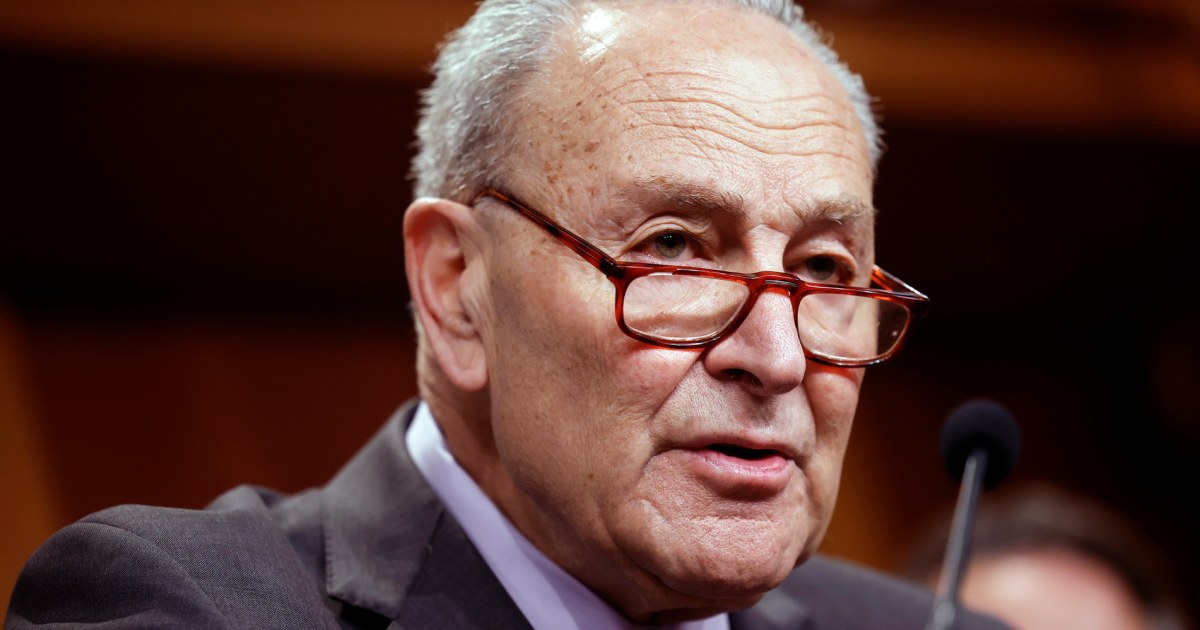Schumer's Leadership: Democrats Voice Concerns – A Growing Unease?
Introduction: Recent weeks have seen a surge in quiet, yet increasingly vocal, concerns within the Democratic party regarding Senator Chuck Schumer's leadership. While he remains the Senate Majority Leader, whispers of dissatisfaction are turning into a murmur that could potentially impact the party's legislative agenda and its prospects in upcoming elections. This article delves into the specific concerns being raised, their potential implications, and what the future might hold for Schumer and the Democratic party.
Key Concerns Surfacing Within the Democratic Party
Several key issues are fueling the growing unease surrounding Senator Schumer's leadership. These include:
1. Legislative Gridlock and Perceived Inefficiency:
- Critics argue that Schumer's leadership has resulted in legislative gridlock, particularly in passing key pieces of the Biden administration's agenda. The slow progress on crucial legislation, coupled with internal disagreements, has led to frustration among some Democrats.
- Examples of perceived inefficiencies include the prolonged debates surrounding voting rights legislation and the challenges faced in unifying the party on infrastructure spending. This has left some feeling that Schumer hasn't effectively managed internal divisions or navigated the complexities of the Senate's legislative process.
2. Communication and Transparency:
- Concerns have been raised regarding the transparency and effectiveness of Schumer's communication strategies. Some senators feel they are not adequately informed about legislative strategy or the party's overall direction.
- This lack of consistent and clear communication can lead to confusion, missed opportunities, and ultimately, a weakening of the party's cohesive front.
3. Handling of Internal Divisions:
- The Democratic party, despite being in the majority, is far from monolithic. Schumer's ability to manage and reconcile the diverse viewpoints within his caucus has come under scrutiny.
- The inability to effectively navigate these internal divisions has, at times, undermined the party's ability to present a united front on crucial issues, weakening their bargaining power and legislative effectiveness.
The Potential Implications for the Democratic Party
The dissatisfaction within the Democratic party poses several significant risks:
- Reduced Legislative Success: Continued internal friction and perceived leadership shortcomings could further hinder the party's ability to pass critical legislation, potentially impacting their ability to fulfill campaign promises.
- Weakened Electoral Prospects: Disunity and discontent within the party could negatively impact voter turnout and enthusiasm, potentially affecting the Democrats' chances in upcoming midterm and presidential elections.
- Erosion of Public Trust: A perceived lack of effective leadership can erode public confidence in the Democratic party and its ability to govern effectively.
What's Next for Schumer and the Democrats?
The coming months will be crucial in determining the fate of Schumer's leadership and the future direction of the Democratic party. Several factors will play a critical role:
- Legislative Successes (or Failures): Whether Schumer can successfully navigate upcoming legislative challenges and deliver on key promises will greatly influence the perception of his leadership within the party.
- Improved Communication and Transparency: A concerted effort to enhance communication and transparency within the caucus could help rebuild trust and address the concerns of dissenting voices.
- Strategic Reconciliation of Internal Divisions: Successfully addressing internal disagreements and fostering greater unity within the party will be crucial in mitigating the current challenges.
Conclusion: The concerns raised about Senator Schumer's leadership are significant and warrant careful consideration. Addressing these issues effectively is critical not only for the success of the Democratic party's legislative agenda but also for its future electoral prospects and the maintenance of public trust. The coming months will provide a crucial test of Schumer's ability to navigate these challenges and solidify his leadership position within the party.
Keywords: Chuck Schumer, Senate Majority Leader, Democratic Party, Legislative Gridlock, Political Leadership, Internal Divisions, Political Strategy, Midterm Elections, Senate, US Politics, Washington DC
(Note: This article is for informational purposes only and does not endorse any particular political viewpoint.)
